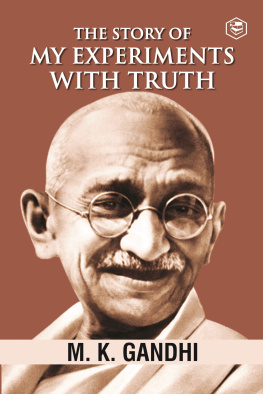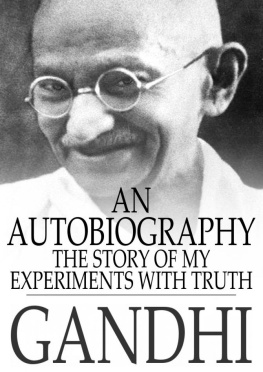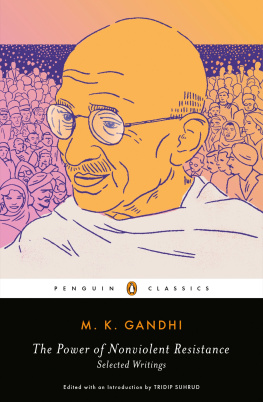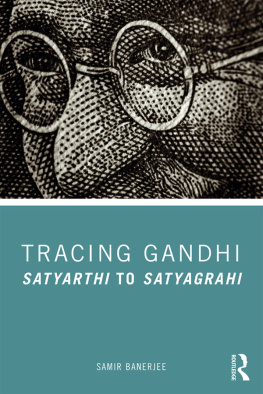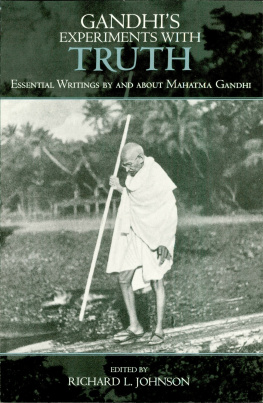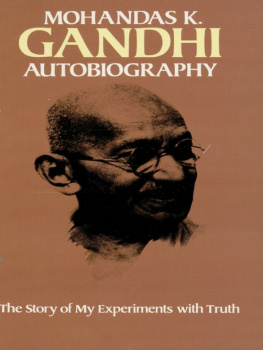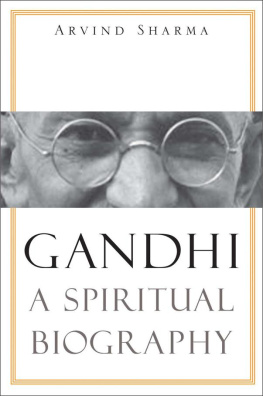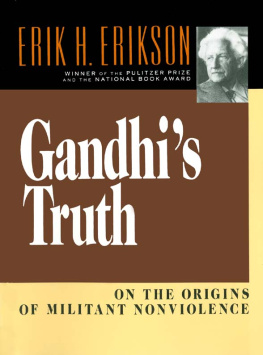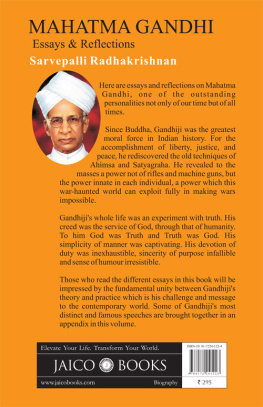Four or five years ago, at the instance of some of my nearest co-workers, I agreed to write my autobiography. I made the start, but scarcely had I turned over the first sheet when riots broke out in Bombay and the work remained at a standstill. Then followed a series of events which culminated in my imprisonment at Yeravda. Sjt. Jeramdas, who was one of my fellow-prisoners there, asked me to put everything else on one side and finish writing the autobiography. I replied that I had already framed a programme of study for myself, and that I could not think of doing anything else until this course was complete. I should indeed have finished the autobiography had I gone through my full term of imprisonment at Yeravda, for there was still a year left to complete the task, when I was discharged. Swami Anand has now repeated the proposal, and as I have finished the history of Satyagraha in South Africa, I am tempted to undertake the autobiography for Navajivan. The Swami wanted me to write it separately for publication as a book. But I have no spare time. I could only write a chapter week by week. Something has to be written for Navajivan every week. Why should it not be the autobiography? The Swami agreed to the proposal, and here am I hard at work.
But a God-fearing friend had his doubts, which he shared with me on my day of silence. What has set you on this adventure? he asked. Writing an autobiography is a practice peculiar to the West. I know of nobody in the East having written one, except amongst those who have come under Western influence. And what will you write? Supposing you reject tomorrow the things you hold as principles today, or supposing you revise in the future your plans of today, is it not likely that the men who shape their conduct on the authority of your word, spoken or written, may be misled? Dont you think it would be better not to write anything like an autobiography, at any rate just yet?
This argument had some effect on me. But it is not my purpose to attempt a real autobiography. I simply want to tell the story of my numerous experiments with truth, and as my life consists of nothing but those experiments, it is true that the story will take the shape of an autobiography. But I shall not mind, if every page of it speaks only of my experiments. I believe, or at any rate flatter myself with the belief, that a connected account of all these experiments will not be without benefit to the reader. My experiments in the political field are now known, not only in India, but to a certain extent to the civilized world. For me, they have not much value; and the title of Mahatma that they have won for me has, therefore, even less. Often the title has deeply pained me; and there is not a moment I can recall when it may be said to have tickled me. But I should certainly like to narrate my experiments in the spiritual field which are known only to myself, and from which I have derived such power as I possess for working in the political field. If the experiments are really spiritual, then there can be no room for self-praise. They can only add to my humility. The more I reflect and look back on the past, the more vividly do I feel my limitations.
What I want to achieve what I have been striving and pining to achieve these thirty years is self-realization, to see God face to face, to attain Moksha. I live and move and have my being in pursuit of this goal. All that I do by way of speaking and writing, and all my ventures in the political field, are directed to this same end. But as I have all along believed that what is possible for one is possible for all, my experiments have not been conducted in the closet, but in the open; and I do not think that this fact detracts from their spiritual value. There are some things which are known only to oneself and ones Maker. These are clearly incommunicable. The experiments I am about to relate are not such. But they are spiritual, or rather moral; for the essence of religion is morality.
Only those matters of religion that can be comprehended as much by children as by older people, will be included in this story. If I can narrate them in a dispassionate and humble spirit, many other experimenters will find in them provision for their onward march. Far be it from me to claim any degree of perfection for these experiments. I claim for them nothing more than does a scientist who, though he conducts his experiments with the utmost accuracy, forethought and minuteness, never claims any finality about his conclusions, but keeps an open mind regarding them. I have gone through deep self-introspection, searched myself through and through, and examined and analysed every psychological situation. Yet I am far from claiming any finality or infallibility about my conclusions. One claim I do indeed make and it is this. For me they appear to be absolutely correct, and seem for the time being to be final. For if they were not, I should base no action on them. But at every step I have carried out the process of acceptance or rejection and acted accordingly. And so long as my acts satisfy my reason and my heart, I must firmly adhere to my original conclusions.
If I had only to discuss academic principles, I should clearly not attempt an autobiography. But my purpose being to give an account of various practical applications of these principles, I have given the chapters I propose to write the title of The Story of My Experiments with Truth. These will of course include experiments with non-violence, celibacy and other principles of conduct believed to be distinct from truth. But for me, truth is the sovereign principle, which includes numerous other principles. This truth is not only truthfulness in word, but truthfulness in thought also, and not only the relative truth of our conception, but the Absolute Truth, the Eternal Principle, that is God. There are innumerable definitions of God, because His manifestations are innumerable. They overwhelm me with wonder and awe and for a moment stun me. But I worship God as Truth only. I have not yet found Him, but I am seeking after Him. I am prepared to sacrifice the things dearest to me in pursuit of this quest. Even if the sacrifice demanded be my very life, I hope I may be prepared to give it. But as long as I have not realized this Absolute Truth, so long must I hold by the relative truth as I have conceived it. That relative truth must, meanwhile, be my beacon, my shield and buckler. Though this path is straight and narrow and sharp as the razors edge, for me it has been the quickest and easiest. Even my Himalayan blunders have seemed trifling to me because I have kept strictly to this path. For the path has saved me from coming to grief, and I have gone forward according to my light. Often in my progress I have had faint glimpses of the Absolute Truth, God, and daily the conviction is growing upon me that He alone is real and all else is unreal. Let those, who wish, realize how the conviction has grown upon me; let them share my experiments and share also my conviction if they can. The further conviction has been growing upon me that whatever is possible for me is possible even for a child, and I have sound reasons for saying so. The instruments for the quest of truth are as simple as they are difficult. They may appear quite impossible to an arrogant person, and quite impossible to an innocent child. The seeker after truth should be humbler than the dust. The world crushes the dust under its feet, but the seeker after truth should so humble himself that even the dust could crush him. Only then, and not till then, will he have a glimpse of truth. The dialogue between Vasishtha and Vishvamitra makes this abundantly clear. Christianity and Islam also amply bear it out.

